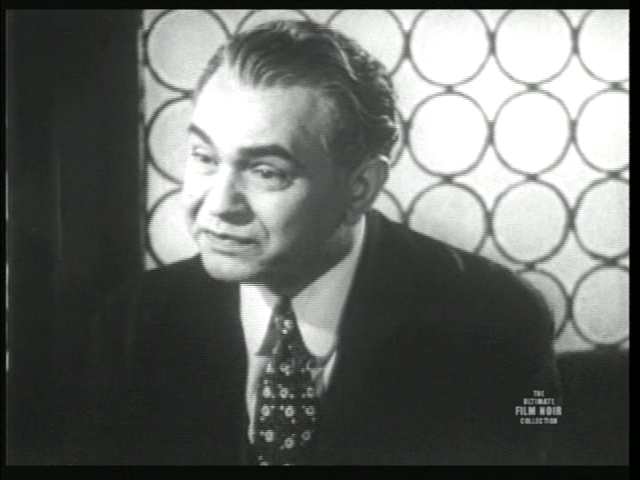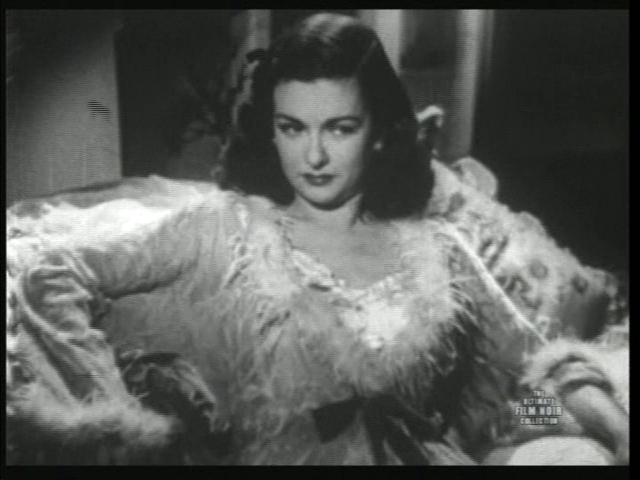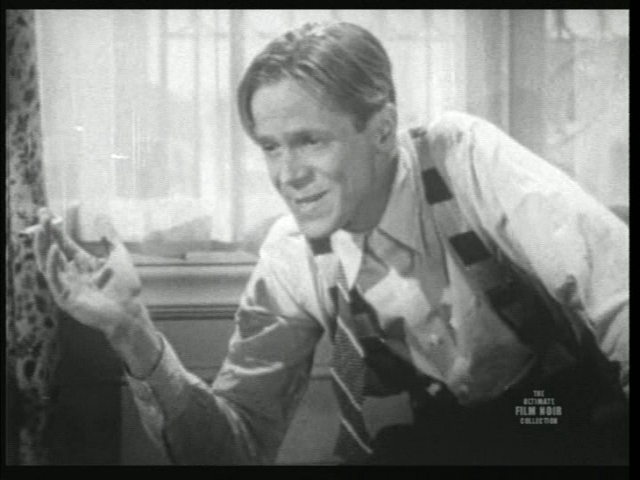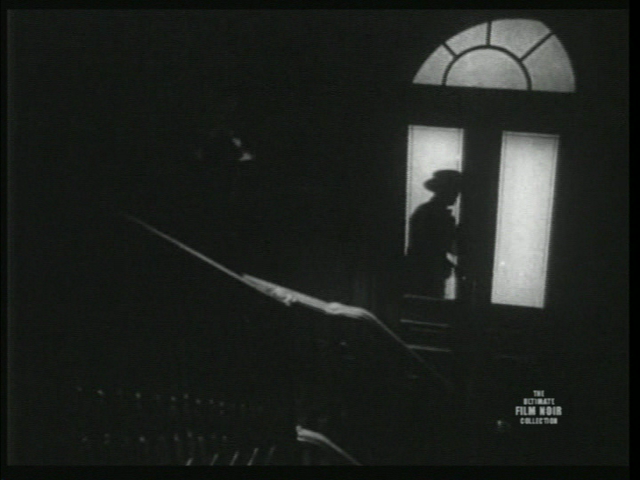|
Genres, Themes, Actors, and Directors:
- Artists
- Con-Artists
- Dan Duryea Films
- Edward G. Robinson Films
- Femmes Fatales
- Fritz Lang Films
- Henpecked Husbands
- Joan Bennett Films
- Midlife Crisis
- Mistaken Identities
Response to Peary’s Review:
Fritz Lang’s American noir version of Jean Renoir’s La Chienne (1931) is a rare remake which succeeds entirely on its own merits; indeed, Peary nominates it as one of the Best Films of the Year in his Alternate Oscars book. As in Renoir’s film, the male protagonist — in this case, a perfectly cast Edward G. Robinson — is “the weakling husband of a domineering nag” who “forces him to paint, his dearest hobby, in the bathroom”, and whose life is changed irrevocably by his chance encounter with a duplicitous femme fatale. Peary notes that “Robinson is such a pathetic man that some viewers find no enjoyment from this film”, which “delves into [Lang’s] familiar serious themes — a man falls for a femme fatale and falls into fate’s trap, everyone becomes his enemy, an innocent man is convicted of a crime, and the startling ending is unbearably cruel” — but he argues that “scriptwriter Dudley Nichols regarded the piece as a comedy, with ironic twists, witty dialogue…, and a pathetic, wimpy character who somehow turns the tables on everyone”. Indeed, Robinson’s henpecked, boring life is so dismal before he meets Bennett that it’s difficult to feel too bad about the events that eventually transpire — especially given that he finally experiences romantic pleasure (however false) for the first time, and finds his artwork (his true passion) validated by critics. Plus, as Peary notes, Robinson’s effect on everyone he knows — including Bennett, Duryea, and Ivan — involves “either ruining their lives or ending them”, so nobody emerges unscathed in this world of masochists and manipulators.
Redeeming Qualities and Moments:
- Edward G. Robinson — nominated by Peary as Best Actor of the Year in his Alternate Oscars book — as Chris Cross (what a name!)

- Joan Bennett — who Peary awards an Alternate Oscar as Best Actress of the Year — as Kitty

- Dan Duryea as Johnny

- Milton Krasner’s noir-ish cinematography

Must See?
Yes, as one of Lang’s minor masterpieces.
Categories
Links:
|
One thought on “Scarlet Street (1945)”
Yes, a very satisfying must!
I don’t know that I’d call this “a minor masterpiece”. Seeing it again, it seems to be one of my favorite Lang pictures. There’s a freshness and spontaneity here that sets it apart from a number of other Lang films.
Of course, Lang is helped immensely by the top-notch screenplay by Nichols (‘The Informer’, ‘Bringing Up Baby’, ‘And Then There Were None’). The film does read like film noir comedy (and how often can *that* term be used?). Nichols has a veritable field day with the idiot characters played by Bennett and Duryea – and even though everything they say rings true to their characters, Nichols still manages to comment through them on what complete dopes they are…dopes who have no concept of the value of money, live like pigs, and still manage to somehow always look great (Bennett, in particular). Much of the writing is really too priceless for words.
[Sidebar: No one could probably say that either Bennett or Duryea were particularly great actors. But, boy, do they shine here!]
And, yes, the work of DP Krasner (‘The Dark Mirror’, ‘All About Eve’, ‘King of Kings’) is classic noir at its best and never less than stunning! One might want to study the film over and over just to marvel at the camerawork alone.
But, most of all, the film belongs, of course, to the great Edward G., here playing a man in the background of his office, his marriage – and, ultimately, not only of his own work as a painter but eventually of the very film in which he has the starring role! (The film will be of particular interest to those who know just what a lover of art Robinson was in life. I love the one joke Nichols supplies for Robinson as a painter and as a character here: “That’s one thing I could never master…perspective.”)
[Note: If Bennett and Duryea are prostitute and pimp, I totally missed it. But, if it’s true, then the fact that Bennett is constantly borrowing money from Robinson can only mean that both she and Duryea are lousy at their jobs.]
Special mention should also be made of: Margaret Lindsay as Bennett’s pal Millie; Rosalind Ivan as Robinson’s atrocious wife; Charles Kemper as her not-quite-dead husband.
Fave moment: Robinson tells Bennett that he’s married. Watch her reaction.
[…This is in eternal memory of Minnie…]